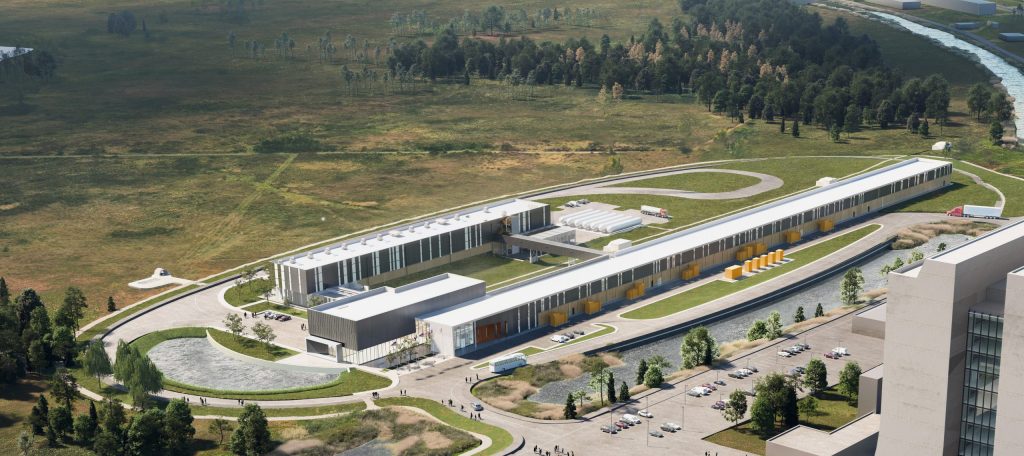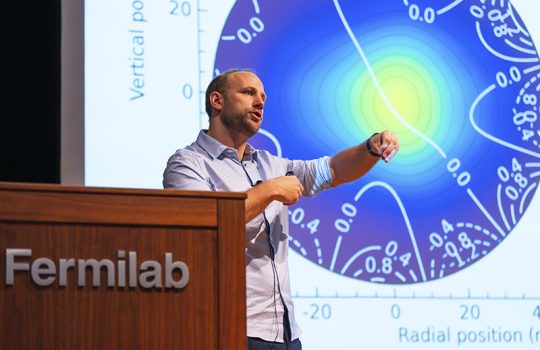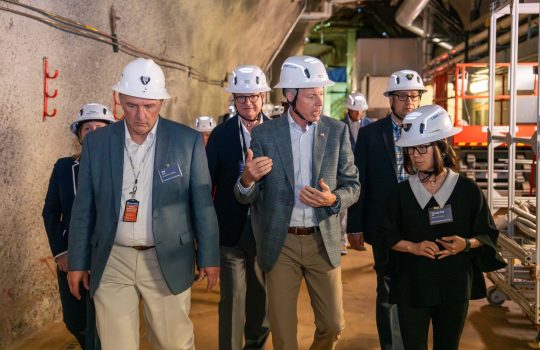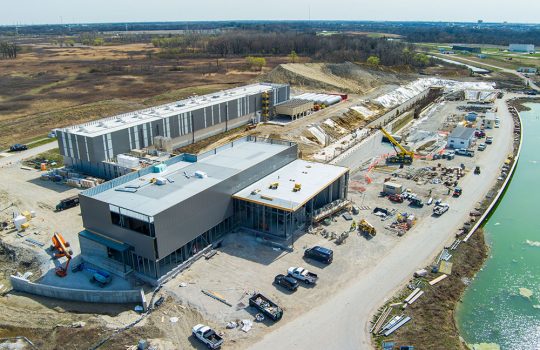India’s Department of Atomic Energy, or DAE, reached a milestone in their participation in building a 215-meter-long particle accelerator in the United States, known as the Proton Improvement Plan II project, or PIP-II. DAE recently informed the U.S. Department of Energy that India is officially moving from the research and development phase to the construction phase for its contributions to the PIP-II project at DOE’s Fermi National Accelerator Laboratory.
This significant transition solidifies a scientific partnership between the United States and India that has been nearly 20 years in the making. DAE institutions now can start to construct the components that they will send to the U.S. to enable the PIP-II project.
Chairman of Atomic Energy Commission of India Ajit Kumar Mohanty stated, “The sustained collaborative efforts during the research and development phase of PIP-II have validated and demonstrated many interesting and exciting developments that would be very important for building next generation accelerators for science and technological applications in India. The success of the research and development phase have facilitated the smooth transition to the construction phase of PIP-II. This success has also provided very high confidence in reaffirming our commitment of in-kind contribution of $140 million and extending all possible support till scheduled completion of PIP-II activities successfully.”

This rendering shows the buildings that will house the new PIP-II particle accelerator at Fermilab. Construction of the cryoplant building, shown at the top of this image, is complete. Fermilab’s 16-story Wilson Hall is partially visible in the bottom right corner. Illustration: Fermilab
In June, Prime Minister Narendra Modi of India and U.S. President Joe Biden met to deepen bilateral cooperation between the two countries on cutting-edge scientific infrastructures. The resulting White House statement (item no. 10) highlighted DAE’s in-kind contribution toward the collaborative development of the PIP-II accelerator.
“We are very excited about India’s critical technical contributions to the Proton Improvement Plan II project at the Fermi National Accelerator Laboratory. These contributions will help to deliver a record-setting proton beam that will power scientific discoveries for years to come,” said Asmeret Asefaw Berhe, DOE’s director of the Office of Science. “We look forward to continuing this longstanding partnership between India’s Department of Atomic Energy and the U.S. Department of Energy.”
The PIP-II project is building a state-of-the-art superconducting linear accelerator at Fermilab in Batavia, Illinois, 40 miles west of Chicago. It will enable the world’s most intense beam of neutrinos that scientists will shoot from Fermilab in Illinois to the gigantic particle detectors of the Deep Underground Neutrino Experiment in Lead, South Dakota. DUNE will be the most comprehensive neutrino experiment ever built, with the goal of uncovering secrets of the universe by studying the properties of the elusive neutrinos.
“We are thrilled that our partners in India have reached this major milestone in their PIP-II participation,” said Fermilab Director Lia Merminga. “Many people have worked hard for years to make sure this partnership could thrive. We at Fermilab value deeply the expertise and capabilities of our colleagues in India and I look forward to working with the DAE institutions to build the PIP-II particle accelerator.”
The PIP-II partnership is a symbiotic relationship and part of the Indian Institutions and Fermilab Collaboration. While providing next generation accelerator capabilities, the collaboration on PIP-II also provides Indian scientists and engineers the training, technical insight and know-how for the development of their domestic particle accelerator program and future projects.
PIP-II is the first particle accelerator on U.S. soil to be built with significant contributions from international partners. Institutions in France, India, Italy, Poland and the United Kingdom are contributing technologies, instrumentation and expertise to build the accelerator.
In India, participating institutions include the Bhabha Atomic Research Centre in Mumbai, the Inter-University Accelerator Centre in New Delhi, the Raja Ramanna Centre for Advanced Technology in Indore, and the Variable Energy Cyclotron Centre in Kolkata.
Many of these Indian institutions will provide a significant number of technical components for PIP-II, including superconducting acceleration structures, electromagnets and radio-frequency power sources. These will be fabricated in India and transported to Fermilab for installation.
Fermi National Accelerator Laboratory is supported by the Office of Science of the U.S. Department of Energy. The Office of Science is the single largest supporter of basic research in the physical sciences in the United States and is working to address some of the most pressing challenges of our time. For more information, please visit science.energy.gov.



